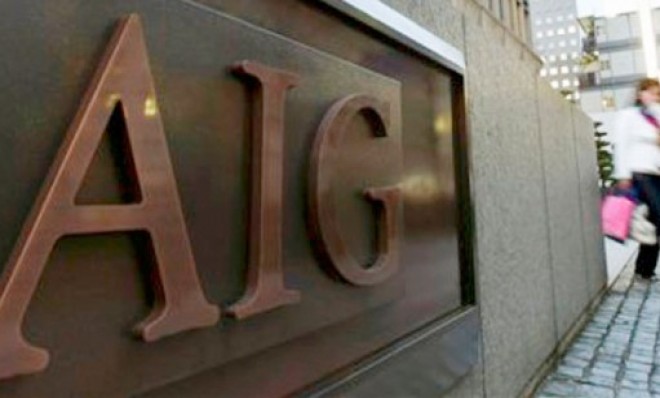Was the AIG bailout a success?
The government made a tidy profit of $22.7 billion. But a celebration may be a tall order


A free daily email with the biggest news stories of the day – and the best features from TheWeek.com
You are now subscribed
Your newsletter sign-up was successful
The Treasury announced on Tuesday that it had sold its last remaining shares in insurance giant American International Group, restoring the company to full private ownership. Furthermore, the Treasury made a healthy $7.6 billion profit on the sale, bringing the total net gain from the government's "investment" in the troubled company to $22.7 billion.
Few saw this day coming. During the financial crisis of 2008, AIG was the poster-child for everything wrong with Wall Street. The company was saturated with derivatives tied to mortgages, the equivalent of gambling the entire house on a single bad bet. And when you consider that AIG was the insurer for 100,000 entities, from retirement plans to major companies, it was more like betting the entire financial system. The government was forced to step in, at one point investing a mind-blowing $182 billion to prevent AIG from collapsing under the weight of its own rot. Federal Reserve Chairman Ben Bernanke, channeling public outrage in his inimitably understated manner, said the rescue of AIG had made him "more angry" than any other bailout.
AIG is understandably as happy as a clam. "Today warrants a celebration like no other in AIG’s history and places well in the past a crisis none of us will ever forget," said CEO Robert Benmosche, who was brought on to rehabilitate the company after its near-demise. "Thank you America. Let’s bring on tomorrow."
The Week
Escape your echo chamber. Get the facts behind the news, plus analysis from multiple perspectives.

Sign up for The Week's Free Newsletters
From our morning news briefing to a weekly Good News Newsletter, get the best of The Week delivered directly to your inbox.
From our morning news briefing to a weekly Good News Newsletter, get the best of The Week delivered directly to your inbox.
A celebration may be a tall order. Sure, by most objective measures, it appears the bailout of AIG was a success. It accrued no loss to the taxpayer, stabilized the financial system, and resulted in a company that is far less exposed to risk. However, there's little sweetness in saving a company that took advantage of a lax regulatory system to turn itself into a massive hedge fund. Tellingly, Vice President Joe Biden would often brag during the campaign about the government's bailout of General Motors, but he never once uttered the line , "AIG is alive and bin Laden is dead."
It certainly didn't help that AIG continued to act like a Wall Street titan even when it was under government control. "It really stuck in the public's craw that trillions of dollars of financial support were being provided to the commanding heights of the American financial system, and those guys were still paying themselves huge bonuses," Jim Millstein, a former Treasury official, tells Bloomberg. "I have real sympathy with the public in that regard."
A free daily email with the biggest news stories of the day – and the best features from TheWeek.com
Ryu Spaeth is deputy editor at TheWeek.com. Follow him on Twitter.
-
 6 of the world’s most accessible destinations
6 of the world’s most accessible destinationsThe Week Recommends Experience all of Berlin, Singapore and Sydney
-
 How the FCC’s ‘equal time’ rule works
How the FCC’s ‘equal time’ rule worksIn the Spotlight The law is at the heart of the Colbert-CBS conflict
-
 What is the endgame in the DHS shutdown?
What is the endgame in the DHS shutdown?Today’s Big Question Democrats want to rein in ICE’s immigration crackdown